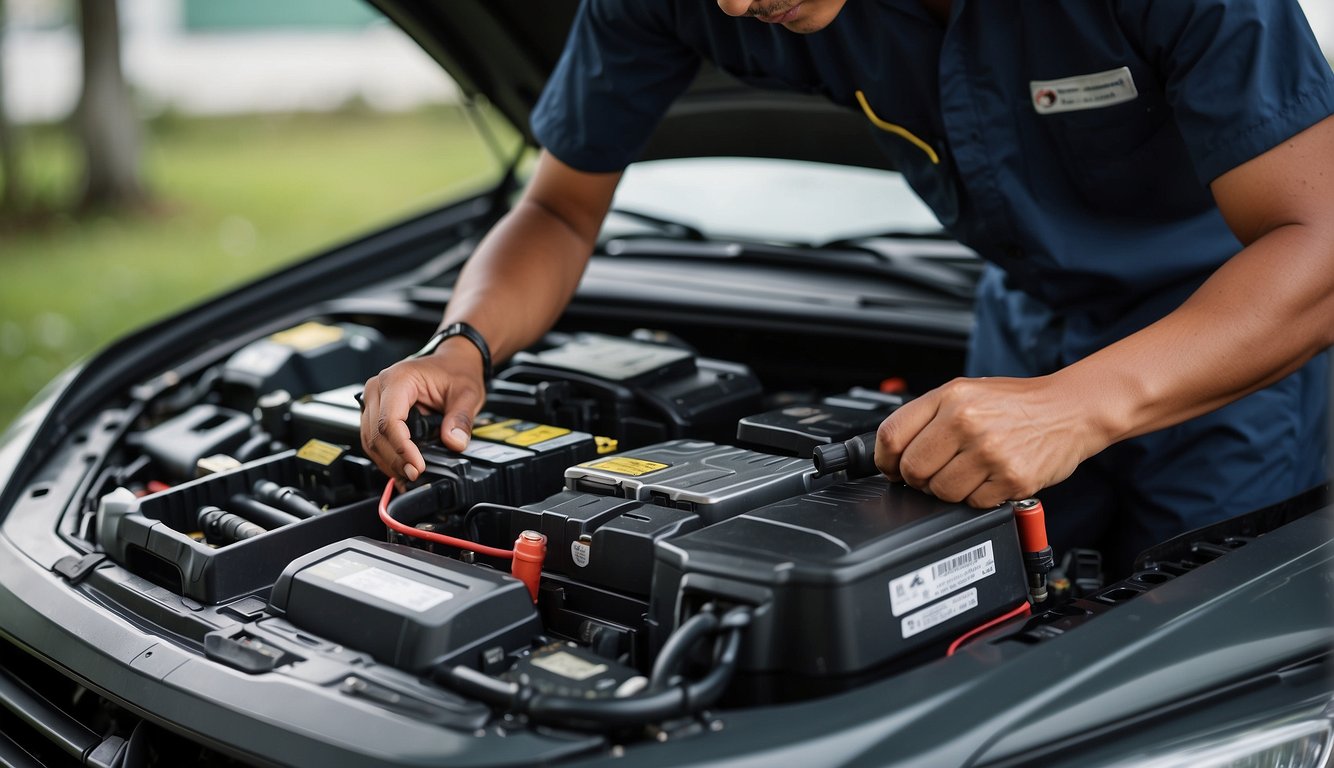In an era where renewable energy, electric vehicles (EVs), and sustainable living dominate conversations around the future, lithium Battery Manufacturers sit at the core of this transformative movement. These companies are not just producing components for gadgets and cars—they are powering the green revolution, enabling cleaner energy systems and reducing global carbon emissions. Their innovations and scale have become pivotal to accelerating a global transition away from fossil fuels and toward more efficient, sustainable alternatives.
The Role of Lithium Battery Manufacturers in Modern Industry
Powering the Electric Vehicle Revolution
Electric vehicles are one of the most visible outcomes of advancements made by lithium battery manufacturers. Automakers across the globe—from startups to legacy brands—rely heavily on the efficiency, energy density, and charging capabilities of lithium-ion batteries. Manufacturers are constantly improving battery technologies to enhance vehicle range, reduce charging time, and extend lifespan. Without these innovations, the EV sector wouldn’t be expanding as rapidly as it is today.
Supporting Renewable Energy Storage
While solar and wind energy are increasingly cost-effective and accessible, they are inherently intermittent. Lithium battery manufacturers provide critical energy storage solutions that stabilize energy grids by storing excess power generated during peak sunlight or wind and releasing it when demand rises. This makes renewable energy far more reliable and scalable.
Enhancing Consumer Electronics and IoT
Smartphones, laptops, tablets, and wearable tech all depend on lithium-ion batteries for their lightweight, rechargeable nature. As the Internet of Things (IoT) becomes more integrated into daily life, lithium battery manufacturers are producing smaller, safer, and longer-lasting power cells to support this trend. Their role extends to everything from smart homes to remote sensors used in agriculture and infrastructure.
How Lithium Battery Manufacturers Drive Innovation
Research and Development
The competitive landscape among lithium battery manufacturers drives continuous R&D efforts. Companies are investing in developing solid-state batteries, increasing energy density, and improving thermal stability. This innovation leads to lighter batteries with higher capacities and better performance in extreme conditions.
Sustainability in Production
Environmentally responsible production is a growing focus among lithium battery manufacturers. From recycling used batteries to sourcing conflict-free raw materials, companies are adopting greener practices. Closed-loop manufacturing systems are being implemented to minimize waste, reduce carbon footprints, and enhance circular economy initiatives.
Investment in Advanced Materials
Cathodes and anodes are key components in lithium-ion batteries. Manufacturers are exploring alternatives such as silicon-based anodes and lithium iron phosphate (LFP) cathodes. These materials offer advantages in cost, safety, and performance. The integration of advanced materials ensures lithium batteries remain the best energy storage solution for diverse applications.
Top Global Lithium Battery Manufacturers Leading the Charge
CATL (Contemporary Amperex Technology Co. Limited)
As one of the largest lithium battery manufacturers in the world, CATL supplies batteries for Tesla, BMW, and other major automakers. Known for its cutting-edge LFP batteries, CATL is pioneering low-cost, high-performance solutions for the EV market.
LG Energy Solution
A spinoff from LG Chem, LG Energy Solution is a dominant player among lithium battery manufacturers. It boasts a robust portfolio in both EV batteries and grid storage systems. The company is investing heavily in next-generation technologies such as solid-state batteries and high-nickel cathodes.
Panasonic
Partnered with Tesla through the Gigafactory in Nevada, Panasonic is a longstanding leader among lithium battery manufacturers. Its focus on cylindrical cells and high energy density has kept it competitive in the fast-paced battery market.
Samsung SDI
Samsung SDI is making waves with its premium battery solutions tailored to electric vehicles and consumer electronics. With continuous investment in research, the company remains one of the most innovative lithium battery manufacturers globally.
BYD
Backed by Warren Buffett, BYD not only produces EVs but also develops its own lithium-ion batteries. Its blade battery is considered a benchmark in safety and longevity, positioning BYD as a vertically integrated leader in the battery ecosystem.
Regional Growth and Demand for Lithium Battery Manufacturers
Asia-Pacific: The Global Hub
The Asia-Pacific region dominates lithium battery production, with China, South Korea, and Japan leading the charge. This region houses most of the world’s top lithium battery manufacturers due to robust supply chains, advanced technology, and supportive government policies.
North America: Expanding Capacity
Driven by the demand for EVs and energy storage, North America is rapidly expanding its domestic battery production. Gigafactories in the U.S. and Canada are being established to reduce dependency on imports and secure critical materials.
Europe: Toward Battery Sovereignty
The European Union has launched initiatives to become less reliant on external lithium battery manufacturers. Countries like Germany and Sweden are investing in battery tech and fostering homegrown champions to meet regional energy goals.
Emerging Trends Shaping the Future of Lithium Battery Manufacturers
Solid-State Battery Breakthroughs
Solid-state batteries promise greater energy density, faster charging, and improved safety. Lithium battery manufacturers are investing billions into research and prototyping. Companies like QuantumScape, Toyota, and Solid Power are actively working to commercialize this technology in the coming years.
AI and Battery Management Systems
Smart Battery Management Systems (BMS) powered by AI are becoming standard across industries. These systems extend battery life, monitor health, and prevent overheating. Leading lithium battery manufacturers are integrating AI into their production processes and end products.
Vertical Integration
To control quality and reduce supply chain disruptions, many lithium battery manufacturers are vertically integrating. This means handling everything from raw material extraction and cell production to battery pack assembly and recycling. It ensures better cost management and higher resilience.
Recycling and Second-Life Batteries
Sustainability is now a key pillar in the strategies of lithium battery manufacturers. Companies are setting up battery recycling plants and exploring second-life applications for used EV batteries—such as repurposing them for grid storage. This not only reduces waste but also adds economic value.
Challenges Facing Lithium Battery Manufacturers
Raw Material Scarcity
Lithium, cobalt, and nickel are essential raw materials. Their availability and ethical sourcing are constant concerns for lithium battery manufacturers. Supply shortages and geopolitical tensions can disrupt production and increase costs.
Regulatory and Safety Standards
Adhering to evolving safety regulations across global markets can be complex. Lithium battery manufacturers must stay ahead of international certifications and ensure their products meet rigorous quality and safety benchmarks.
Environmental Impact
Although lithium batteries are cleaner than fossil fuels, mining and manufacturing still have environmental implications. Water usage, land disruption, and chemical waste are challenges that lithium battery manufacturers must address with innovation and accountability.
Why Lithium Battery Manufacturers Are Critical for Green Technology
Enabling Electrification Across Sectors
From transportation to agriculture, healthcare to infrastructure, electrification is sweeping across industries. Lithium battery manufacturers are key enablers, providing versatile energy storage systems that power everything from tractors to medical devices.
Reducing Global Carbon Emissions
As countries commit to carbon neutrality, lithium battery manufacturers play a direct role in decarbonization. By replacing combustion engines and fossil-fuel-based generators, their products help drastically reduce CO₂ emissions on a global scale.
Empowering Decentralized Energy Models
With the help of lithium batteries, homeowners and businesses can install solar panels and go off-grid. Lithium battery manufacturers are thus helping democratize energy access and improve resilience against outages and natural disasters.
Driving Technological Convergence
Electric vehicles, 5G networks, AI-powered devices, and smart grids all require reliable energy storage. Lithium battery manufacturers operate at the nexus of these technologies, ensuring synergy and performance through continuous innovation.
What to Look for in a Lithium Battery Manufacturer
Proven Track Record and Certifications
A reliable lithium battery manufacturer should have years of experience, global partnerships, and all necessary certifications (ISO, UL, CE, etc.). These factors reflect their commitment to quality and safety.
Customization and Scalability
The best lithium battery manufacturers offer flexible solutions tailored to specific industries. Whether it’s a custom BMS, shape, or voltage, scalability and adaptability are critical traits.
After-Sales Support and Warranty
Strong after-sales support is a hallmark of reputable lithium battery manufacturers. Warranties, responsive customer service, and readily available technical documentation ensure a smooth experience post-purchase.
R&D Investment and Innovation Pipeline
Companies that consistently reinvest in research are more likely to deliver cutting-edge products. Look for lithium battery manufacturers with a strong innovation pipeline, patent portfolio, and ongoing academic or industrial collaborations.
Conclusion
Lithium battery manufacturers are the silent champions behind the green tech revolution. Their innovations empower cleaner transport, smarter energy systems, and sustainable industrial practices. As the world races to address climate change and embrace renewable energy, the role of these manufacturers will only become more pivotal. Their contributions are not just technical—they are foundational to a future that is not only electrified but also equitable, efficient, and ecologically balanced.




